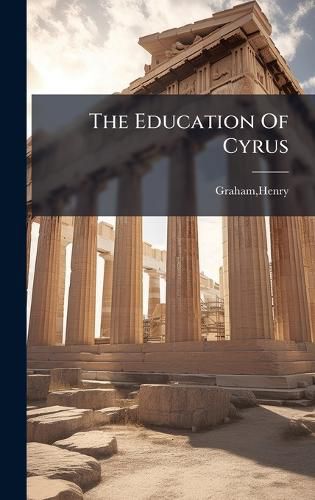Readings Newsletter
Become a Readings Member to make your shopping experience even easier.
Sign in or sign up for free!
You’re not far away from qualifying for FREE standard shipping within Australia
You’ve qualified for FREE standard shipping within Australia
The cart is loading…






"The Education of Cyrus" by Xenophon, recounts the life of Cyrus the Great, founder of the Persian Empire. More than a mere biography, the book explores the ideal qualities of a ruler and the methods by which a state may be successfully governed. Through anecdotes and speeches, Xenophon illustrates Cyrus's wisdom, benevolence, and military prowess, presenting him as a model leader.
This historical work offers insights into ancient Persian culture and political thought, reflecting Xenophon's own philosophical perspectives. "The Education of Cyrus" remains relevant for its examination of leadership principles and the relationship between rulers and their people. It provides valuable lessons on governance, strategy, and ethical conduct, appealing to readers interested in history, political science, and the art of leadership.
This work has been selected by scholars as being culturally important, and is part of the knowledge base of civilization as we know it. This work was reproduced from the original artifact, and remains as true to the original work as possible. Therefore, you will see the original copyright references, library stamps (as most of these works have been housed in our most important libraries around the world), and other notations in the work.
This work is in the public domain in the United States of America, and possibly other nations. Within the United States, you may freely copy and distribute this work, as no entity (individual or corporate) has a copyright on the body of the work.
As a reproduction of a historical artifact, this work may contain missing or blurred pages, poor pictures, errant marks, etc. Scholars believe, and we concur, that this work is important enough to be preserved, reproduced, and made generally available to the public. We appreciate your support of the preservation process, and thank you for being an important part of keeping this knowledge alive and relevant.
$9.00 standard shipping within Australia
FREE standard shipping within Australia for orders over $100.00
Express & International shipping calculated at checkout
"The Education of Cyrus" by Xenophon, recounts the life of Cyrus the Great, founder of the Persian Empire. More than a mere biography, the book explores the ideal qualities of a ruler and the methods by which a state may be successfully governed. Through anecdotes and speeches, Xenophon illustrates Cyrus's wisdom, benevolence, and military prowess, presenting him as a model leader.
This historical work offers insights into ancient Persian culture and political thought, reflecting Xenophon's own philosophical perspectives. "The Education of Cyrus" remains relevant for its examination of leadership principles and the relationship between rulers and their people. It provides valuable lessons on governance, strategy, and ethical conduct, appealing to readers interested in history, political science, and the art of leadership.
This work has been selected by scholars as being culturally important, and is part of the knowledge base of civilization as we know it. This work was reproduced from the original artifact, and remains as true to the original work as possible. Therefore, you will see the original copyright references, library stamps (as most of these works have been housed in our most important libraries around the world), and other notations in the work.
This work is in the public domain in the United States of America, and possibly other nations. Within the United States, you may freely copy and distribute this work, as no entity (individual or corporate) has a copyright on the body of the work.
As a reproduction of a historical artifact, this work may contain missing or blurred pages, poor pictures, errant marks, etc. Scholars believe, and we concur, that this work is important enough to be preserved, reproduced, and made generally available to the public. We appreciate your support of the preservation process, and thank you for being an important part of keeping this knowledge alive and relevant.